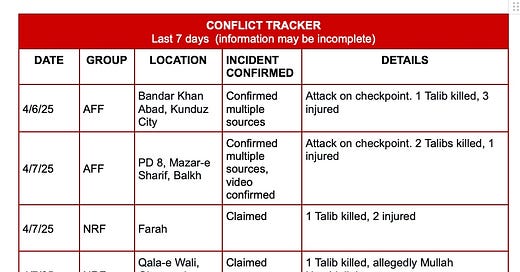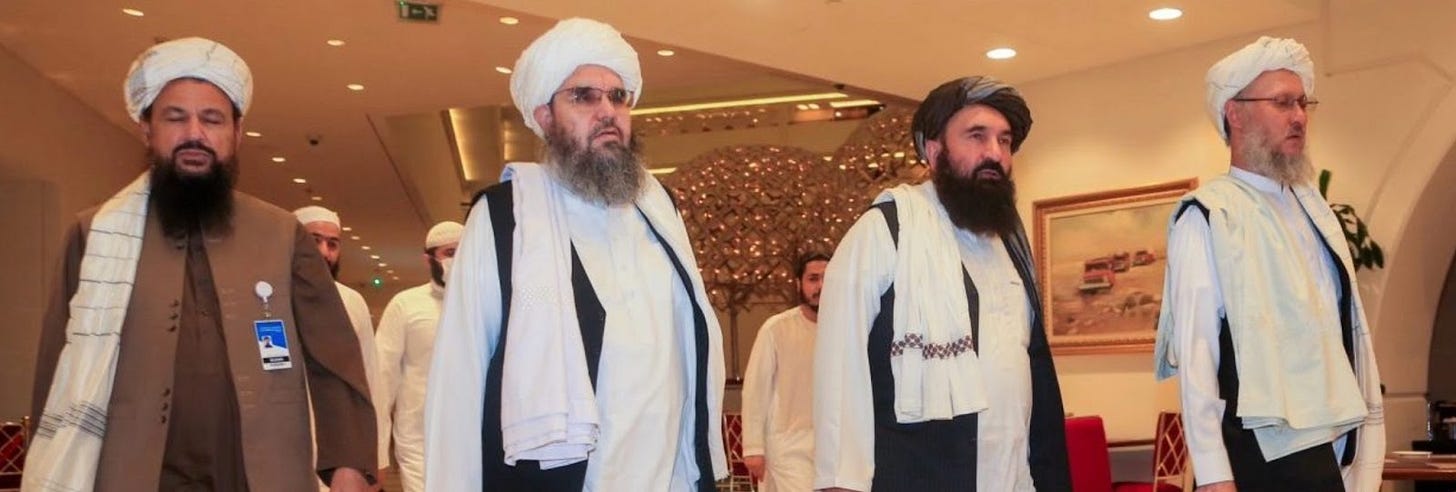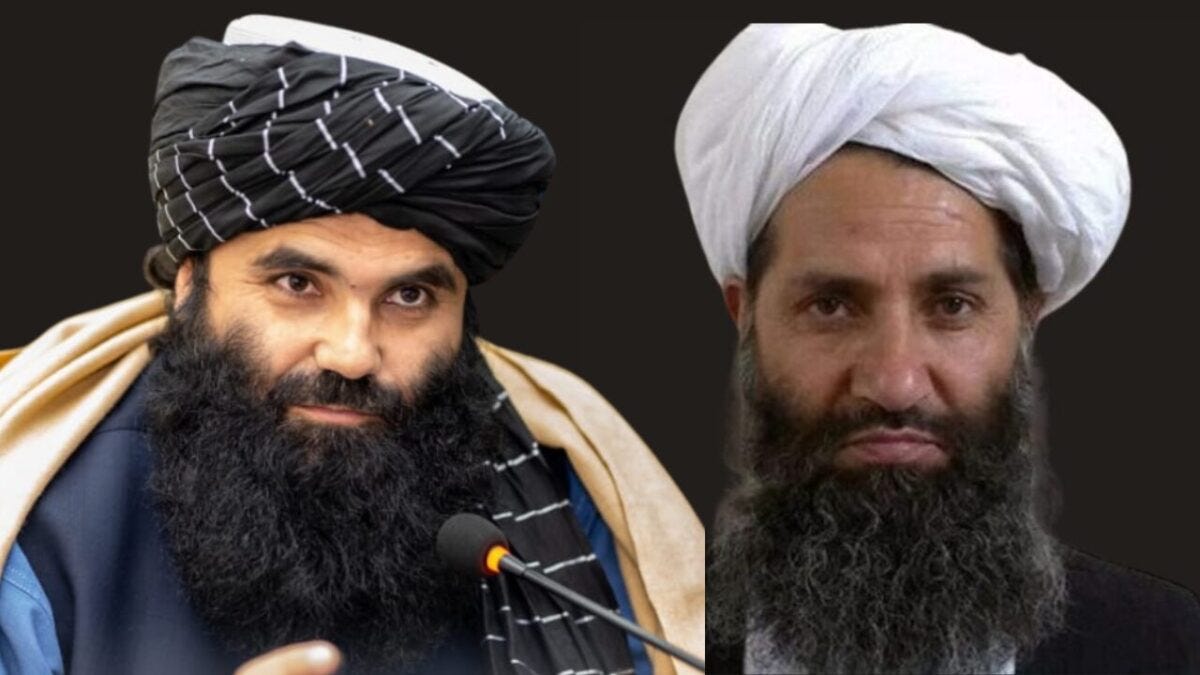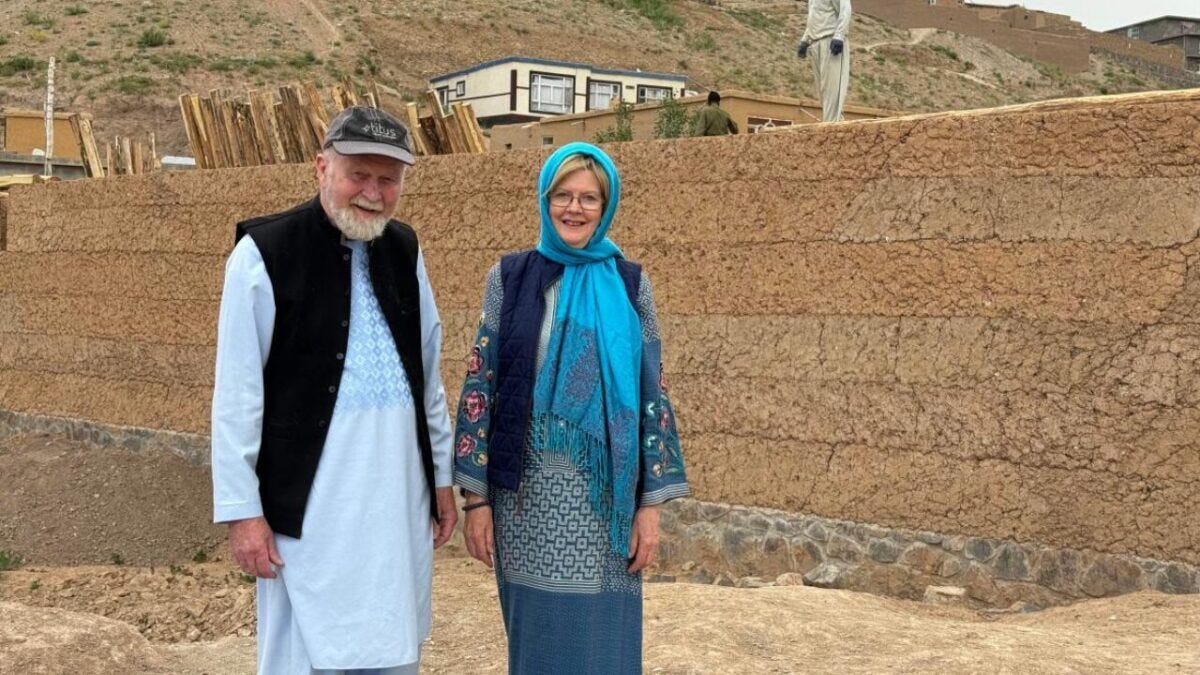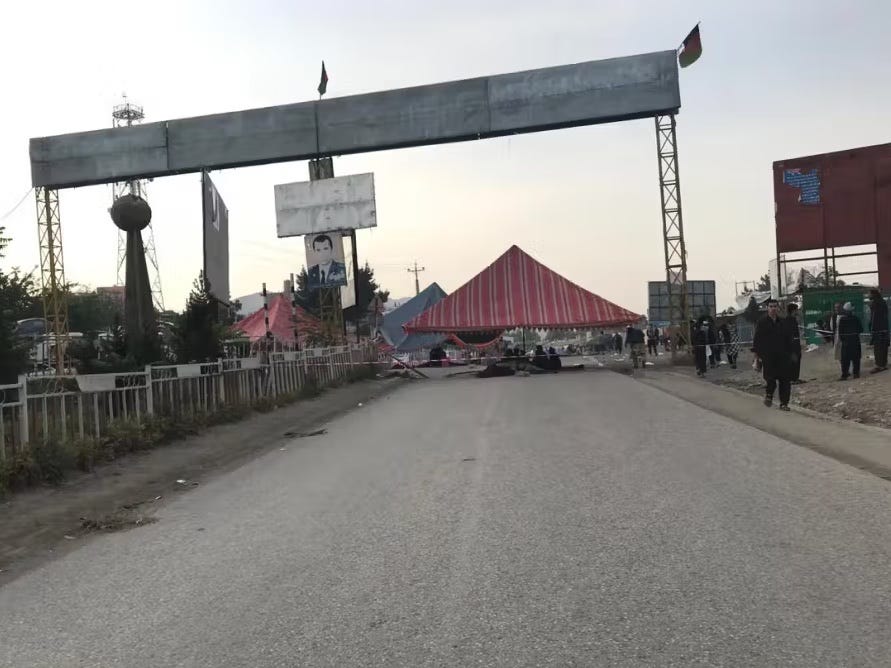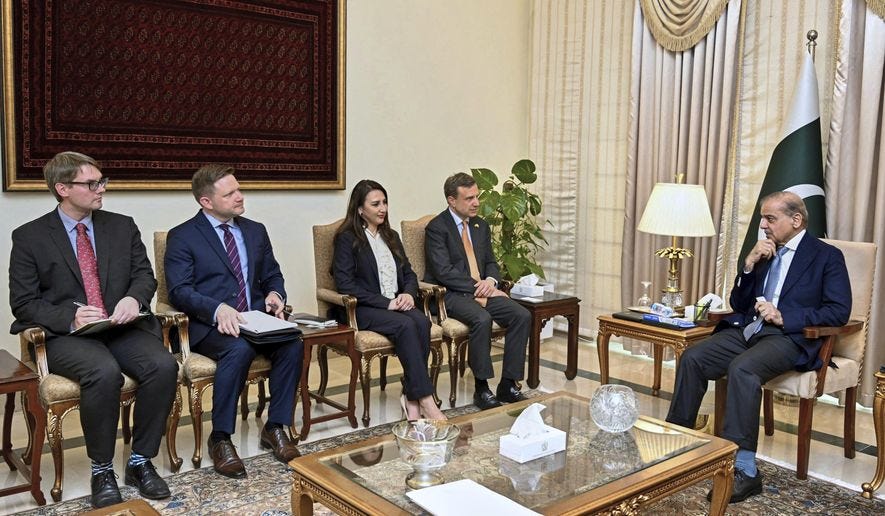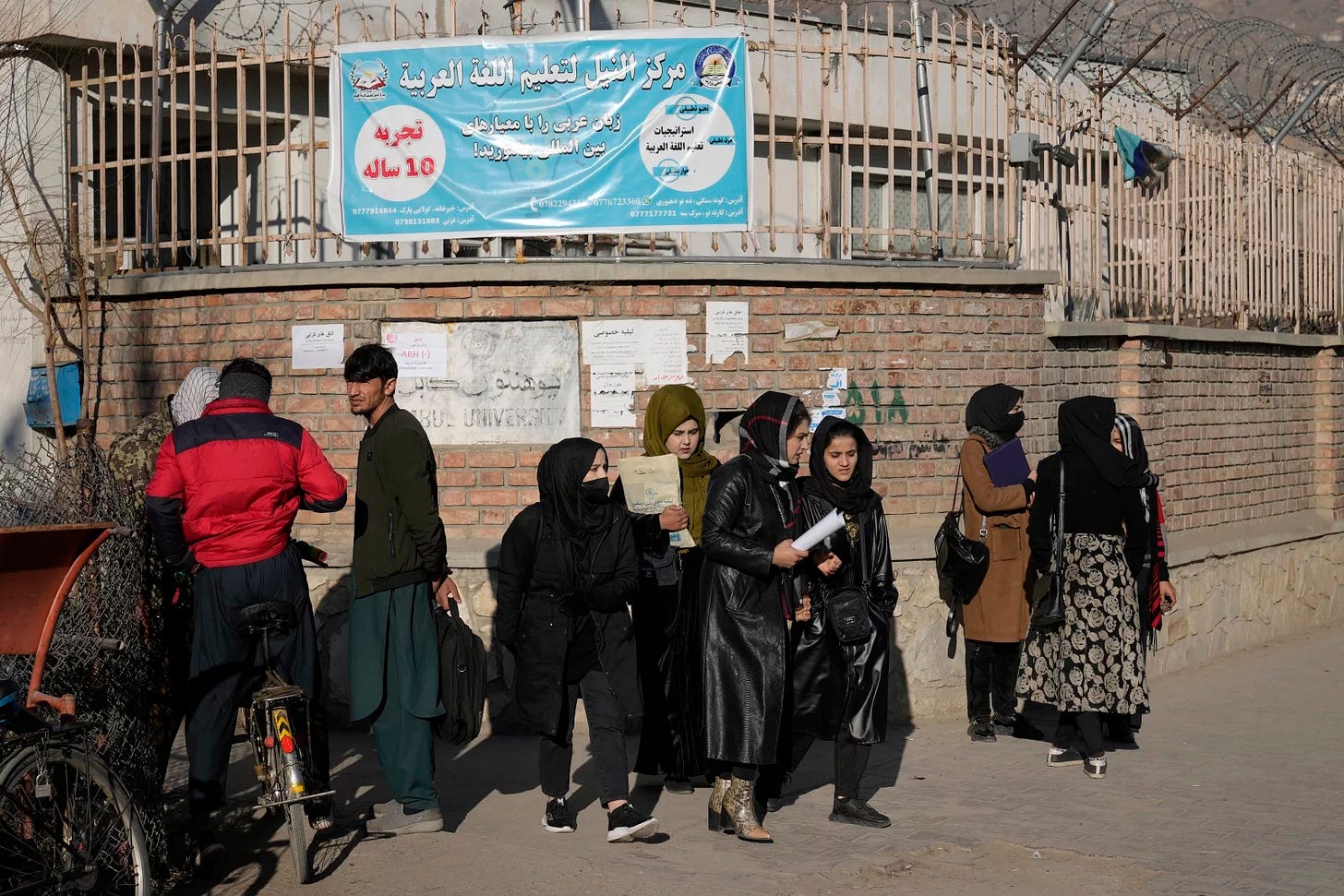The Week of April 7-13
Security and Conflict
Cross Border Missile Attack Hits Nuristan – Pakistani forces launched rocket attacks on Kamdesh district in Afghanistan’s Nuristan province from Friday afternoon to Saturday morning, injuring a child and a man. Local sources report that many families fled their homes in fear, though the injured are in stable condition. Neither Pakistan nor the Taliban have commented, and the motive remains unclear. Pakistan has previously targeted Afghan border areas, alleging the presence of Pakistani Taliban and anti-Islamabad militants in the region.
Explosion in Kandahar – On Thursday around 6 a.m., an explosion at the Taliban police headquarters in Kandahar injured four personnel. Taliban officials claimed the blast was caused by a container of old ammunition. The incident occurred near the clearance commission office and was followed by heavy gunfire, according to sources and videos. The site, located across from Aino Mina township in District 5, was quickly surrounded by Taliban forces. Witnesses reported ambulances and rising smoke. Aino Mina, home to Taliban leader Mullah Hibatullah and other senior officials, remains a key stronghold of the group’s leadership in southern Afghanistan.
Increased Security in Kandahar – On Friday, the Taliban increased security around Kandahar city, setting up multiple checkpoints along the Spin Boldak–Kandahar route, a key border crossing with Pakistan. According to sources, individuals entering from Pakistan are being inspected, and those lacking identification are being detained. Taliban officials have not yet commented. Spin Boldak sees daily traffic from hundreds of travelers and cargo trucks, making it a significant entry point into southern Afghanistan.
Human Rights and Civil Liberties
Executions – On Friday, the Taliban publicly executed two individuals in Badghis province, one in Nimroz, and one in Farah province—all convicted of murder under the principle of qisas (retributive justice). All four were executed by gunshot. Locals were instructed to attend the executions but were barred from bringing weapons or smartphones.
Floggings – On Tuesday, a man and a woman were flogged in Sar-e Pul, and three men were flogged in Wardak. Also this week, one person was flogged in Kabul and three others in Badghis and Panjshir. On Saturday, thirteen people—including four women—were flogged in Khost and Jowzjan. On Sunday, two individuals were flogged in Faryab. Last week, reports indicated that Mullah Hibatullah ordered an increase in public punishments.
Acting Vice and Virtue Minister Statement on Non-Muslims – Taliban minister Khalid Hanafi called non-Muslims “worse than four-legged animals” in a speech in Kabul, sparking alarm over the safety of Afghanistan’s religious minorities. Referring to Hindus, Sikhs, Jews, and Christians as morally inferior, he urged ideological training for civil servants under Taliban rule. The comments drew condemnation from rights groups and highlighted the ongoing threats faced by minorities, whose communities have largely fled Afghanistan since the Taliban’s return to power.
Internal Politics
Ministry of Higher Education Cuts 14% of Workforce – The Taliban’s Ministry of Higher Education, under orders from Supreme Leader Mullah Hibatullah Akhundzada, has issued a confidential directive cutting 14% of its workforce. The cuts disproportionately affect female professors, effectively removing them from Afghan universities. The move, coordinated by Minister Neda Mohammad Nadeem, aligns with broader Taliban efforts to Islamize education and replace academic staff with madrasa-trained clerics. Student enrollment has declined by nearly 29% due to the exclusion of women. The full report on this can be accessed here
Nangarhar Culture Chief Fired For Poetry Event – Mullah Hibatullah Akhundzada dismissed Nangarhar’s culture chief, Qari Sajid, after poet Matiullah Tarab publicly urged Hibatullah to come to Kabul and hold a Loya Jirga during the Naranj Gul poetry event. The poem, seen as a call for public consultation on governance, led to Sajid’s removal. Mullah Zabihullah Noorani has been appointed as his replacement.
International Developments
UNAMA Releases Report on Vice and Virtue Law – In a new report, UNAMA assessed the first six months of the Taliban's enforcement of the Propagation of Virtue and Prevention of Vice (PVPV) law. The report highlights increasing restrictions on civil liberties, especially targeting women and girls through mandatory hijab, bans on unaccompanied travel, and exclusion from work and education. Thousands of male inspectors enforce the law with broad discretion, often resulting in arbitrary detentions—frequently of men for non-compliant appearances. The law also disrupts humanitarian operations, impedes women’s access to aid, and harms small businesses and media freedom. UNAMA warned the law could cost Afghanistan over $1.4 billion annually in economic losses and further isolate the country internationally. The report urges the Taliban to reverse these policies to avoid deeper socio-economic decline. The full report can be accessed Here
US Cuts Aid To Afghanistan – On Monday, the Trump administration suspended most or all remaining U.S. humanitarian aid to Afghanistan, according to a Reuters report. The cuts, made by the State Department and USAID, affect vital programs including food assistance and support for women and girls. Former USAID officials and other sources warn the move will worsen Afghanistan's humanitarian crisis, placing millions at risk. The United Nations is investigating the canceled contracts. The decision aligns with broader efforts to scale back or dismantle USAID, disrupting global development aid. These cuts come as Afghanistan faces severe challenges under Taliban rule, compounding the suffering of its vulnerable population.
US To End TPS Status for Afghans in May – On Friday, the Trump administration announced it is ending Temporary Protected Status (TPS) for approximately 14,600 Afghans, with protections set to expire in May. The Department of Homeland Security claims Afghanistan no longer meets TPS criteria, despite ongoing crises under Taliban rule. Critics, including human rights groups, call the move a betrayal of U.S. allies. The administration has also begun revoking temporary parole for evacuated Afghans, requiring departure within seven days unless alternative legal status is obtained.
Germany Pauses UNHCR Resettlement – Germany has temporarily suspended its UNHCR refugee resettlement program amid preparations for a new CDU/CSU and Social Democratic coalition government. The parties have agreed to halt all voluntary refugee admissions, including those through UN-run programs. While 4,711 refugees have arrived in 2024, Germany had pledged to admit 13,000 by 2025. The Interior Ministry stated that advanced cases will proceed. The suspension follows rising support for the far-right AfD and public concern over violence linked to refugees, prompting tougher immigration policies.
Afghanistan Coordination Group Meeting held in Istanbul – On Wednesday, the Afghanistan Coordination Group convened in Istanbul for a two-day summit to coordinate international responses to Afghanistan’s worsening humanitarian crisis. Representatives from the UN, donor countries, and financial institutions discussed aligning aid efforts and transitioning from emergency relief to sustainable development. The UN warned of severe funding shortfalls, rising hunger, and malnutrition among Afghan children. With U.S. aid suspended, humanitarian agencies face major constraints. UNAMA emphasized that regional stability depends on continued long-term international support and collaboration.
Afghanistan War Commission Hearing – On Friday, during the second U.S. Senate hearing of the Afghanistan War Commission, former CIA Deputy Director Henry Crumpton emphasized the critical role of Afghan forces in supporting U.S. operations and reiterated the mission's original focus on defeating al-Qaeda. He criticized the Taliban’s decision to side with al-Qaeda and accused Pakistan of sheltering its leaders. Former Afghan Vice President Younis Qanooni criticized the Bonn Process for lacking oversight and sidelining the United Front. Former U.S. officials, including Ambassador Nancy Powell and USAID head Andrew Natsios, highlighted Pakistan’s failed tribal policies, widespread corruption, and the misallocation of U.S. aid. The hearing reflected on U.S. strategic flaws from 2001–2008 and key lessons learned. The Hearing video can be accessed here
US Bill Introduced to Block All Aid to Afghanistan – The U.S. House Foreign Affairs Committee has approved the No Tax Dollars for Terrorists Act, which aims to block American aid from reaching the Taliban. Introduced by Rep. Tim Burchett, the bill responds to concerns that U.S. humanitarian aid indirectly benefits the Taliban through taxes and fees. Lawmakers cite nearly $10 million reportedly reaching the group since 2021. The bill now moves to the House floor, reflecting bipartisan efforts to increase oversight of Afghan aid. In response, Taliban Deputy Minister of Finance Mohammad Naeem Wardak claimed Afghanistan is entitled to compensation for the U.S.-led occupation.
IOM Meets with Acting Minister of Refugees – On Tuesday, Taliban Acting Minister Abdul Kabir met with officials from the Red Cross and IOM to address Pakistan’s forced deportation of Afghan migrants. Ahmad Suleiman confirmed ongoing aid efforts, with upcoming phases providing millions more in assistance. The IOM reported distributing $3.2 million in aid over the past three months and continues to support returnees at four Afghan border crossings, highlighting ongoing humanitarian efforts amid the refugee crisis.
Freedom of the Press
New Bans on Living Images – On Wednesday, the Taliban banned the publication of images and videos of living beings in Badakhshan, Jawzjan, Zabul, and Parwan provinces, enforcing a decree by Mullah Hibatullah. The new restrictions expand on similar bans already in place in Kandahar, Takhar, Baghlan, and Nimroz—now affecting media in 13 provinces.
Regional Developments
CSTO Meeting Held – On Saturday, CSTO Secretary-General Imangali Tasmagambetov met with Tajik President Emomali Rahmon in Dushanbe to discuss implementing the first phase of a long-term program to strengthen Tajikistan’s border with Afghanistan. The program, originally drafted in 2013 and approved by the CSTO Security Council in November 2023, will be executed in three stages through 2029. Phase one involves assessing CSTO member states’ capacity to supply weapons, equipment, and border protection tools. Phase two (2026–2027) will address priority areas, and phase three (2027–2029) will expand implementation across the full border. Both leaders emphasized coordinated efforts and reaffirmed CSTO members' commitment to regional security.
Taliban Acting Deputy PM Visits Torkham – During a visit to the Torkham border, Taliban Deputy Prime Minister Abdul Salam Hanafi accused Pakistan of damaging bilateral relations through the forced expulsion of Afghan migrants. He called for an end to the deportations, calling it injustice, and announced the creation of “Qasimabad,” a new settlement to house 4,000 returnee families. The Taliban urged international organizations and Afghan traders to assist returnees and called on neighboring countries to stop deporting Afghan nationals.
Pakistan Statement on Cross Border Terrorism – On Friday, Pakistan’s Foreign Office spokesperson Shafqat Ali Khan stated that terrorism and militant sanctuaries in Afghanistan continue to obstruct improved ties with the Taliban, despite diplomatic engagement. He cited security concerns as the main obstacle during a weekly briefing. Special Representative Mohammad Sadiq echoed this, warning that existing agreements could be revoked if terrorism concerns are not addressed. Pakistan blames the TTP for increased cross-border attacks—claims the Taliban strongly deny—fueling ongoing bilateral tensions.
Pakistan And Uzbekistan Discuss Trans-Afghan Corridor – On Monday, Uzbekistan and Pakistan discussed advancing the Trans-Afghan railway corridor during a meeting between President Shavkat Mirziyoyev and Senate Chairman Yousuf Raza Gilani. They emphasized growing bilateral ties, rising trade, and joint ventures. The corridor, part of a $5 billion Termez–Peshawar railway project signed in 2021 with Afghanistan, aims to boost regional connectivity and potentially transport 20 million tons of cargo annually across Europe, Central, and South Asia.
Miscellaneous
Flooding in various parts of Afghanistan – On Wednesday, a flood in Badakhshan's Shahr-e Bozorg district killed one person and left three missing, according to Taliban police. The disaster also destroyed vehicles, equipment, and farmland, and blocked the main Badakhshan–Takhar highway. Elsewhere, floods killed at least seven in Bamiyan, five girls in Kandahar and Helmand, and one in Kunar. On Thursday, severe flooding struck multiple districts in Badakhshan—Kishm, Tagab, Shahr-e Bozorg, Maymi, Raghistan, Yaftal, and Jurm—causing one confirmed death and widespread destruction. Authorities reported significant damage to infrastructure and agriculture, highlighting the extensive impact of recent flooding across Afghanistan.
NEXT WEEK
In Afghanistan, following a week of heightened security incidents, security crackdowns—including house-to-house searches and increased checkpoints—are likely, particularly in minority-populated areas of Kabul, as well as in Kandahar, Kunduz, and several northern provincial capitals. Authorities have also ordered increased detentions, arrests, and public punishments related to morality offenses.
Heavy rains and flooding are expected across the country. Residents in flood-prone areas should monitor weather alerts, as travel disruptions are likely.
In Pakistan, Deportations of ACC holders have begun. House-to-house searches for Afghans have been reported in Balochistan, with similar operations and checkpoint inspections expected in other areas, particularly Islamabad and Rawalpindi. Deportations of Afghans awaiting third-country relocation are scheduled to begin on April 30, while those holding PoR cards face deportation starting June 30. All Afghans in Pakistan are urged to carry valid visas and identification at all times.
Please note that even individuals with valid visas have been detained. Therefore, Afghans should limit their movements and avoid large gatherings and protests—particularly the ongoing sit-ins in Quetta. As the April 30 deadline approaches, gatherings advocating for third-country relocation may be targeted by authorities for detention and deportation.
In the US, the Trump Administration has announced that Temporary Protected Status (TPS) for Afghans will end in May. Some individuals with TPS or Humanitarian Parole have received emails from the U.S. government stating they have seven days to depart the country. Anyone who receives such an email should consult an attorney immediately, even if they believe the message was sent in error.
A travel ban for Afghans entering the U.S. remains likely, though the timing is uncertain. SIV holders with valid visas already issued in their passports are strongly advised to travel to the U.S. as soon as possible, as restrictions may be implemented once the ban takes effect.
Housing and resettlement assistance for new arrivals remains blocked. Individuals arriving in the U.S. should ensure they have a local support system prepared to help with initial expenses and accessing benefits. All Afghans in the U.S., including Green Card holders, are urged to avoid international travel at this time.
Resources for Afghans are available:
Parole assistance – Here
Resources for recent SIV arrivals – Here
Support for recent refugee arrivals – Here
Updates on U.S. visa cases and legal developments – Here
REGIONAL ROUNDUP
IRAN
Deportations Continue – Iranian authorities report that over 6.1 million Afghan nationals reside in the country, exceeding UN estimates of approximately 4 million. Of these, 2.1 million have legal status, 2 million are registered, and the remainder remain undocumented. In 2024 alone, more than 1.2 million Afghans have returned from Iran, with 67% forcibly deported. Recently, 4,000 undocumented Afghans were deported from Kerman Province within just 14 days. Iran cites economic strain and favors returns. The Taliban and Iranian officials have held talks to coordinate repatriation, including plans to build 46 housing townships in Afghanistan. Most undocumented migrants are women and children, amid growing calls for international aid.
Iran Executes Three Afghans – At least three Afghan nationals were recently executed in Iran, according to two human rights organizations. Iran Human Rights reported seven executions in Karaj, including one Afghan for drug-related offenses. HRANA noted two additional Afghans executed in Qazvin for similar charges. Activists highlight a surge in such executions since the Taliban’s return in 2021, with over 80 Afghans executed in Iran in 2024 alone.
PAKISTAN
Deportations in Pakistan – As of Saturday, UNHCR reported that 45,000 Afghans have returned from Pakistan since April 1, including 14,000 who were forcibly deported. Deportees include both undocumented individuals and Afghan Citizen Card (ACC) holders. Despite holding legal documents, many were forcibly removed and had belongings confiscated. IOM has provided aid to more than 2,600 people at the Torkham and Spin Boldak crossings but stressed the urgent need for funding. Deportees report harsh treatment, lack of facilities, and trauma—including cases involving individuals who have never lived in Afghanistan. Pakistan specifically targeted Afghan refugees in Islamabad and Rawalpindi for expulsion by the end of March. Authorities in Khyber Pakhtunkhwa have stated that Afghans will not be forcibly deported from the province, though there is no certainty on whether this ruling will be enforced. On Wednesday, the Peshawar High Court ruled that Afghans holding Proof of Registration (PoR) cards will not be detained or deported until after the June 30 deadline.
Statement on Next Phases of Deportation – Pakistan’s State Minister for Interior, Tallal Chaudhry, confirmed that Afghan refugees awaiting resettlement will be deported if not relocated by host countries by April 30. No extension will be granted for ACC holders, whose deadline expired on March 31. Deportations are occurring in phases: undocumented individuals first, ACC holders second, and PoR card holders beginning June 30. Chaudhry cited security concerns and emphasized that resettlement delays will not halt deportations, though individual exceptions may be considered.
Eight TTP killed in Cross Border Attack – On Sunday, April 6, eight TTP militants were killed during a failed cross-border infiltration attempt near the Afghanistan–Pakistan border in North Waziristan, according to the Pakistan Army. The clash occurred in the Hassan Khel area after militants were detected by Pakistani forces. Four others were injured. The army praised its troops’ swift response and urged the Afghan Taliban to prevent militant groups from using Afghan territory for cross-border attacks into Pakistan.
Meeting on Protests in Balochistan – A delegation of senior lawyers met Prime Minister Shehbaz Sharif on Tuesday, urging the formation of a high-powered committee to engage in dialogue with the Balochistan National Party-Mengal and other political groups involved in ongoing protests. The delegation raised serious concerns about governance and human rights in Balochistan, where basic freedoms—including freedom of movement and expression—are reportedly under threat. These appeals come amid continued sit-in protests in Quetta following the March 23 arrest of Baloch Yakjehti Committee (BYC) activist Mahrang Baloch. The delegation also emphasized the need for federal support to address the region’s ongoing challenges and instability.
SPOTLIGHT ANALYSIS
In the thorny world of intra-Afghan talks, new challenges and opportunities emerge
Omar Samad
The 2021 collapse of the US-backed government in Afghanistan derailed the Doha, Qatar-hosted talks between the Taliban and the republic’s disjointed delegation.
But despite a convenient loss of interest by Taliban rulers, who have been in power-consolidation mode ever since their Kabul takeover, the prospect for practical intra-Afghan talks is not dead.
In fact, February saw a blitz of conferences from the highly diversified Afghan diaspora and more moderate voices representing Afghan civil society. There are also signs of renewed interest on the part of the United Nations in adopting a more comprehensive trust-building approach rather than single-item agendas as a precondition for wider engagement and recognition.Paired with a new US administration at the helm, which appears willing to break from diplomatic norms to drive results—as recently seen in the case of back-channel facilitations leading to the release of two American detainees in Kabul—there is a renewed urgency in achieving a streamlined vision for a dialogue framework.
The international community now has an opportunity to pursue a two-track policy of ad hoc engagement on issues that are of interest to key stakeholders, while supporting a UN-led effort to address key recommendations as part of Security Council resolutions 2721 and 2777.
AFGHAN NEWS
Sources: Haqqani warned Hibatullah of possible Taliban leadership split
Sharif Amiry
In a March meeting with the Taliban’s leader in Kandahar, Taliban Interior Minister Sirajuddin Haqqani criticized the curtailing of his authority and denounced Hibatullah’s hardline policies, warning that senior Taliban leaders may break away if the current trajectory continues.
In the private meeting, held last month with mediation from Taliban Defense Minister Mohammad Yaqoob Mujahid and their intelligence chief Abdulhaq Wasiq, Haqqani is said to have directly criticized Akhundzada’s increasingly hardline policies and the consolidation of power within a small circle of loyalists.
According to individuals briefed on the exchange, Haqqani warned that if the current trajectory continues, “many leaders will choose a different path,” signaling a rare and direct challenge to Akhundzada’s authority.
British detainee describes Taliban prison as ‘the nearest thing to hell’
Yasin Shayan
A British man detained by the Taliban has described the notorious Pul-e-Charkhi prison in Kabul as “the nearest thing to hell,” offering a harrowing account of alleged abuse, intimidation and inhumane conditions in a phone call from inside the facility.
Peter Reynolds, 79, and his wife, Barbie Reynolds, 75, were arrested on February 2 in Bamiyan Province, along with their translator and a Chinese-American citizen. Only the latter has since been released — a development that came shortly after the Trump administration removed a $10 million bounty on Taliban interior minister Sirajuddin Haqqani.
Reynolds said he is being held in a wing of the prison alongside violent criminals and receives only one meal a day. His wife is reportedly being held separately in a women’s facility.
Afghan Woman Beaten By Family After Taliban Release Her From Prison
Afghanistan International
Sources in Baghlan Province told Afghanistan International on Monday that Qadriya, a 28-year-old woman recently released from Taliban custody, was severely beaten by her family upon returning home.
According to these sources, Qadriya sustained serious facial injuries during the assault.
The Taliban released Qadriya from Kiligai Prison on Saturday, 5 April, handing her over directly to her father. Prior to her release, Qadriya had explicitly warned authorities that returning to her family posed a grave risk to her life, stating that she feared she would be killed.
REGIONAL NEWS
Pakistan says U.S. companies seek to invest in the country’s untapped minerals sector
Munir Ahmed
U.S. companies are seeking to invest in Pakistan’s largely untapped minerals sector that boasts one of the world’s largest copper and gold deposits, the Pakistani government said Wednesday.
Eric Meyer, Senior Bureau Official for the State Department’s Bureau of South and Central Asian Affairs, conveyed that interest directly to Pakistani Prime Minister Shehbaz Sharif during a meeting in Islamabad, according to a government statement.
INTERNATIONAL NEWS RELATING TO AFGHANISTAN
Trump administration lists thousands of immigrants as dead in new policy
Rene Marsh
The Department of Homeland Security requested the Social Security Administration to enter more than 6,000 names of immigrants into its database used to track dead people, according to a DHS official with knowledge of the decision.
The move will effectively financially starve the immigrants, cutting off their ability to legally work in the country, receive various government benefits and access financial services like credit and bank accounts. The Trump administration is hoping it will drive them to self-deport, according to the official. It’s all a part of the administration’s efforts to crack down on migrants in the country.
The move, first reported by The New York Times, targets immigrants who have Social Security numbers and may have entered the United States under programs that have ended, like the Biden administration’s temporary work programs.
USAID enabled 208 Afghan women to defy the Taliban ban on college — until now
Ruchi Kumar
She's a young woman who has zero chance of pursuing a college degree in Afghanistan.
That's because in December 2022 the Taliban decreed that women would no longer be allowed to pursue university education. High schools for girls were banned the year before.
But she found a way to follow her dream. Starting in 2024, R.K. began taking online courses at the American University of Afghanistan (AUAF), thanks to a scholarship funded by the U.S. Agency for International Development (USAID). (R.K. asked to be identified by her initials because of fear that the Taliban would threaten her for defying their ban.)
Afghani to the Dollar: $1 – 72.56 AFN (As of April 13)

